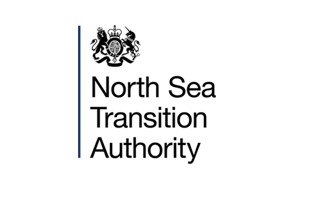
- Seven new oil and gas projects approved so far in 2023
- New developments to generate £4bn of investment
- Progress on North Sea Transition Deal emissions targets highlighted
Government, regulators and industry chiefs gathered in Aberdeen - Europe’s energy capital - today (29 November) to discuss the outlook for investment in the North Sea following several strong votes of confidence in the basin.
The North Sea Transition Forum, which sets the strategic direction of the oil and gas sector, also heard that industry has made encouraging progress on emissions, having recorded three consecutive years of reductions, but that bold action is needed to ensure key targets are met.
The forum was hosted by the North Sea Transition Authority (NSTA) and attended by Graham Stuart, Minister of State for Energy Security and Net Zero, the Scottish Government and leading industry representatives.
Seven new projects together valued at almost £4 billion and capable of producing 370 million barrels of oil and gas have been given the go-ahead by regulators and investors so far this year, attendees were told.
Furthermore, since the previous meeting in June, the NSTA has awarded 27 new licences as part of the 33rd licensing round, with more to follow in the coming months, a clear sign of the North Sea’s enduring appeal.
Also this year, 21 licences were awarded in the UK’s first ever carbon storage licensing round, adding to the six already in existence, and work is proceeding at pace to ensure first injection takes place as soon as possible.
The North Sea’s investment case has been further buoyed by measures in the UK Government’s Autumn Statement which will bring long-term stability and predictability to oil and gas taxation.
The forum also received updates on the North Sea Transition Deal, agreed in March 2021 to support the sector as it transitions to net zero and safeguard the UK’s world-leading supply chain.
The deal committed industry to halving emissions from its operations by 2030 and spending £16 billion on carbon storage, hydrogen and platform electrification projects.
As shown in the NSTA’s recent Emissions Monitoring Report, industry cut its production emissions by 23% between 2018 and 2022, but needs to do more to achieve the 2030 target, which is crucial to retaining public support for the sector long term.
The NSTA recently launched a consultation on a draft plan aimed at encouraging industry to go further and faster on emissions reduction. The consultation closes tomorrow (30 November).
Stuart Payne, NSTA Chief Executive and co-chair of the forum, said: “The North Sea, with its diverse energy systems, sustains hundreds of thousands of skilled jobs and is a vital cog in the UK’s drive to net zero.
“The basin has shown resilience in uncertain times by continuing to attract billions of pounds of investment in projects which support the UK’s energy security alongside a wide range of activities that will both reduce emissions and accelerate the transition – including offshore wind and carbon storage.”
Minister for Energy Security and Net Zero Graham Stuart said:
“The oil and gas industry not only underpins our energy security but sustains a supply chain vital to the net zero transition.
“The sector is reducing production emissions, greening the basin, supporting 200,000 jobs and generating £50 billion in taxes over the next five years. Far from slowing our transition to net zero, new UK oil and gas licences enable it.”
For further information please contact:
Tel: 07776 548196



